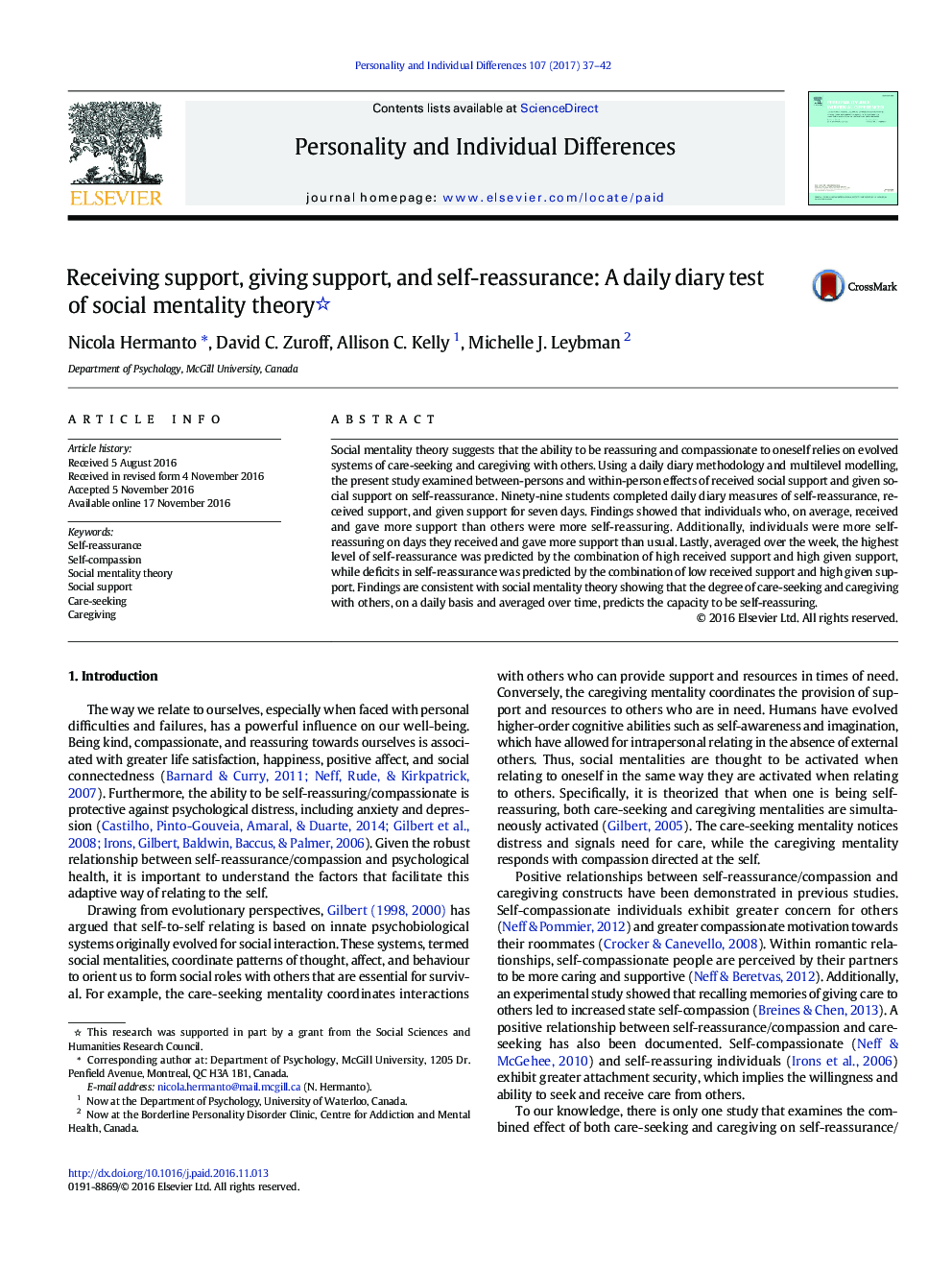| Article ID | Journal | Published Year | Pages | File Type |
|---|---|---|---|---|
| 5036136 | Personality and Individual Differences | 2017 | 6 Pages |
â¢The present study used a daily diary methodology and multilevel modelling.â¢Over the week, those who received and gave more support were more self-reassuring.â¢People were more self-reassuring on days they received and gave more support.â¢The most self-reassuring people received and gave high levels of support in tandem.â¢The least self-reassuring people gave high support but received low support.
Social mentality theory suggests that the ability to be reassuring and compassionate to oneself relies on evolved systems of care-seeking and caregiving with others. Using a daily diary methodology and multilevel modelling, the present study examined between-persons and within-person effects of received social support and given social support on self-reassurance. Ninety-nine students completed daily diary measures of self-reassurance, received support, and given support for seven days. Findings showed that individuals who, on average, received and gave more support than others were more self-reassuring. Additionally, individuals were more self-reassuring on days they received and gave more support than usual. Lastly, averaged over the week, the highest level of self-reassurance was predicted by the combination of high received support and high given support, while deficits in self-reassurance was predicted by the combination of low received support and high given support. Findings are consistent with social mentality theory showing that the degree of care-seeking and caregiving with others, on a daily basis and averaged over time, predicts the capacity to be self-reassuring.
